Unpopped Housing Bubbles Abound
History suggests that we can anticipate the eventual popping of all remaining housing bubbles.
Many nations in Europe have had a property bubble, but only Ireland has officially had a bubble pop. Spain is currently in process of acknowledging their bubble pop, but many other nations in the eurozone appear to have had similar-looking housing price growth yet have not officially acknowledged their bubble price moves.
The different eurozone nations were split into two groups; states with property bubbles, and states without. Criteria for a bubble is property prices doubling within 10 years. The selection was relatively easy in most cases - the only borderline case was Italy, where they had property prices rise "only" 66% over 8 years. There are two notable cases: Belgium, where prices have gone up 243% since 1998 and are still at that lofty level, and France, where prices have risen 263%, and no correction has yet occurred.
The data comes from the ECB, but is collected by each member nation. They are index values, with the 100 value set generally to one of the years between 2007-2008. Some of these series update annually, some monthly, and some quarterly. It is a mix of data; some use only existing homes, others use existing and new homes. Data availablity varies between nations; every attempt was made to select the best series. To provide a "bubble baseline", the US Case Shiller 10-city index has been normalized with early 2006=100 and added to each graph.
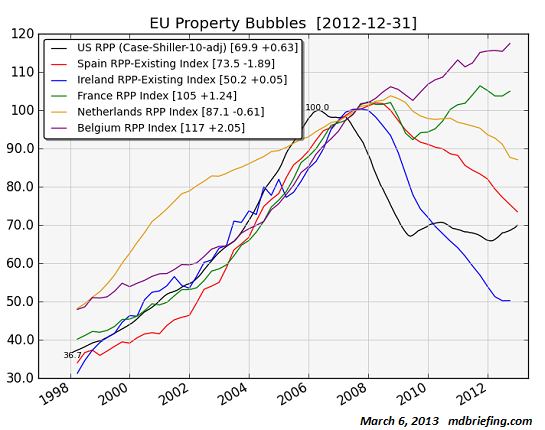
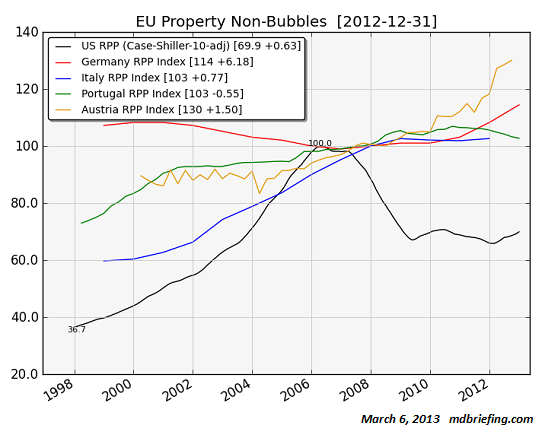
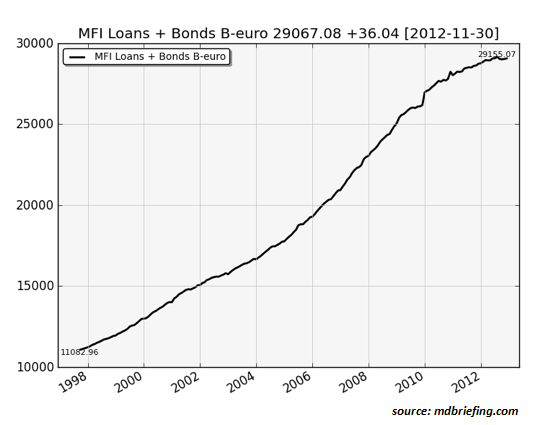
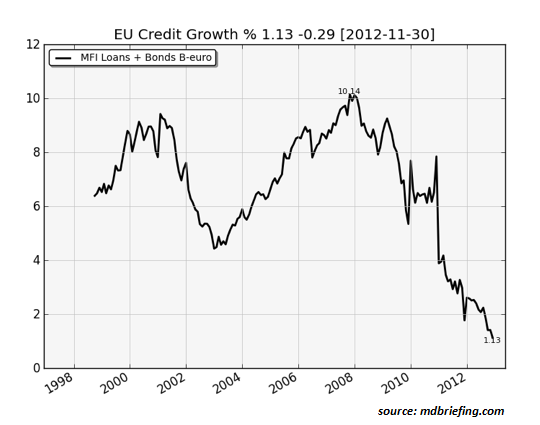
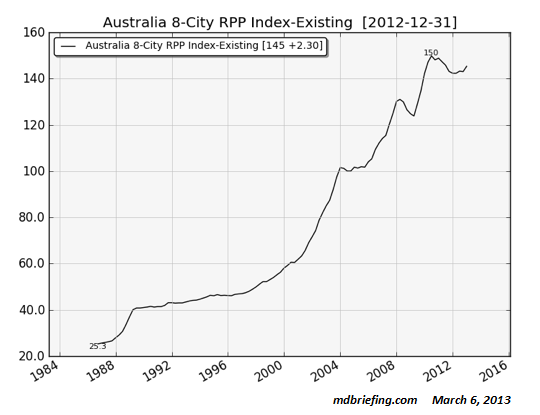
Roundtable discussion with CHS, Gordon T. Long and Bill Laggner: China, Japan & Central Banking (25 Minutes, 34 Slides)
Things are falling apart--that is obvious. But why are they falling apart? The reasons are complex and global. Our economy and society have structural problems that cannot be solved by adding debt to debt. We are becoming poorer, not just from financial over-reach, but from fundamental forces that are not easy to identify or understand. We will cover the five core reasons why things are falling apart:
 1. Debt and financialization
1. Debt and financialization2. Crony capitalism and the elimination of accountability
3. Diminishing returns
4. Centralization
5. Technological, financial and demographic changes in our economy
Complex systems weakened by diminishing returns collapse under their own weight and are replaced by systems that are simpler, faster and affordable. If we cling to the old ways, our system will disintegrate. If we want sustainable prosperity rather than collapse, we must embrace a new model that is Decentralized, Adaptive, Transparent and Accountable (DATA).
We are not powerless. Not accepting responsibility and being powerless are two sides of the same coin: once we accept responsibility, we become powerful.
Kindle edition: $9.95 print edition: $24 on Amazon.com
To receive a 20% discount on the print edition: $19.20 (retail $24), follow the link, open a Createspace account and enter discount code SJRGPLAB. (This is the only way I can offer a discount.)
| Thank you, Craig H. ($100), for yet another outrageously generous contribution to this site -- I am greatly honored by your steadfast support and readership. | Thank you, John V. ($50), for yet another prodigiously generous contribution to this site --I am greatly honored by your steadfast support and readership. |



























